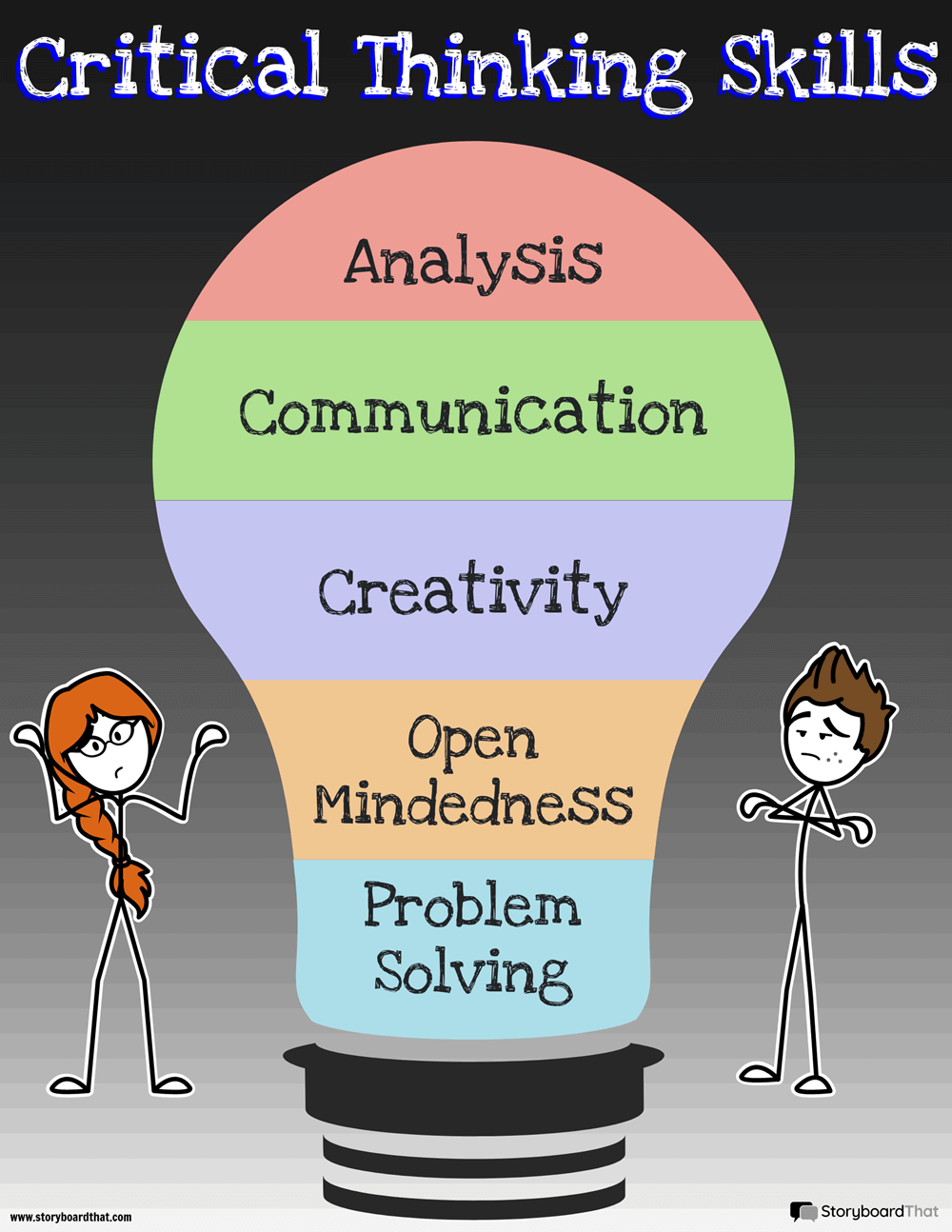Raise your Learning: Essential Critical Thinking Skills Uncovered
In today's fast-paced and information-rich world, the capacity to think significantly is more crucial than ever with regard to students. As link find their way through vast portions of information and complex problems, developing sturdy critical thinking abilities can empower these people to analyze scenarios, make informed judgements, and engage considerately with different viewpoints. Critical thinking will be not just a great academic skill; it is just a fundamental life skill that prepares pupils for future issues in both their own personal and expert lives.
Understanding the essential critical thinking skills just about every student needs can certainly significantly enhance their particular educational experience. Simply by fostering an atmosphere of which encourages inquiry in addition to skepticism, educators may help students cultivate these skills. Whether or not it is recognizing logical reasoning, evaluating problem-solving abilities, or even differentiating between information and opinions, teaching students to consider critically will not only boost their own academic performance but also equip them with regard to real-world scenarios. Once we explore the attributes of effective crucial thinkers and the particular methods to nurture these types of abilities, we will uncover how boosting critical thinking can lead to deep growth and accomplishment in students’ lifestyles.

Understanding Critical Thinking Skills
Critical thinking skills usually are fundamental to a student’s academic voyage and overall growth. These skills allow students to assess information rigorously, assess different perspectives, and synthesize knowledge efficiently. Essentially of essential thinking lies typically the ability to question assumptions, identify biases, and distinguish involving fact and view, that is essential intended for navigating complex themes and real-world scenarios.
One of the important aspects of critical thinking is logical thought, which involves drawing conclusions depending on sound proof and rational thought processes. Strong critical thinkers approach problems methodically, utilizing analytical skills to crack down information and even assess its validity. This ability is crucial not only regarding academic success nevertheless also for efficient decision-making in everyday activity. Encouraging students to develop these reasoning expertise fosters independence and cultivates a mindset geared towards pursuit and inquiry.
Moreover, essential thinking is profoundly intertwined with curiosity. Students who are naturally curious usually tend to ask more questions and search for deeper understanding, which enhances their capacity for analysis and problem-solving. By promoting some sort of culture of attention in the school room, educators can assist learners become more involved learners who will be not afraid to be able to challenge the status quo and believe creatively about strategies to various challenges. Therefore, understanding and building view it is essential intended for any student aiming for success in their academic and personal endeavors.
Evaluating Critical Thinkers
Assessing critical thinkers throughout the classroom requires identifying specific characteristics that signify sturdy analytical abilities. One particular key aspect is observing how college students approach problems; effective critical thinkers analyze situations from multiple angles before drawing conclusions. They have a tendency to inquire insightful questions and demonstrate the willingness to discover various perspectives, which not only reflects their analytical skills but also their own fascination with the theme matter. Educators can create benchmarks to assess these traits, offering a structured approach to be able to identifying which learners jump out in their very own critical thinking functions.
One other important factor inside evaluating critical thinkers is their skills in logical thought. Effective students are able to separate between valid fights and logical fallacies, allowing them in order to construct sound reasoning in their discussions and written do the job. Watching how college students support their promises with evidence in addition to identify weaknesses inside opposing viewpoints can shed light in their analytical prowess. Teachers might use work that challenge college students to deconstruct arguments and engage found in debates, thus offering opportunities for college students to demonstrate and improve their logical thinking skills.
Additionally, assessing some sort of student's ability to be able to think independently is usually crucial. Strong essential thinkers not only accept information with face value yet actively engage together with concepts, questioning presumptions and exploring option viewpoints. Encouraging learners to reflect on their thinking process enhances their independence, top to deeper understanding. Strategies such since self-assessment and peer feedback can foster an environment where learners evaluate their thinking and growth, aiding educators gauge their development as crucial thinkers while building confidence and durability in their learning trip.
Improving Critical Thinking in Students
To foster important thinking in students, educators should produce an environment that stimulates questioning and pursuit of ideas. This begins with teaching students to separate between facts in addition to opinions, an essential ability that enhances their ability to assess information critically. Actions that involve studying different perspectives on the topic can aid students recognize biases in their own thinking while encouraging all of them to consider alternative viewpoints. By fostering a culture of inquiry, teachers may motivate students to ask questions plus seek deeper understanding.
Combining debate and debate into the class room is really a powerful approach to enhance crucial thinking skills. Whenever students engage in organised discussions on various topics, they practice articulating their thoughts plus defending their roles. This engagement not necessarily only helps them develop argumentation abilities but also allows them to spot reasonable versus emotional thinking in themselves and their own peers. By on a regular basis participating in these types of activities, students learn to challenge assumptions and build stronger analytical skills.
In addition, reflection and self-assessment play significant jobs in improving crucial thinking. Encouraging learners to reflect about their decision-making techniques and evaluate their very own problem-solving approaches generates a deeper recognition of their unique thinking. This practice might lead to better confidence in their very own abilities as critical thinkers and decision-makers. Ultimately, as pupils learn to be skeptical of info and continuously question the globe around these people, they become far better prepared for academics success and the particular real-life challenges these people will face.